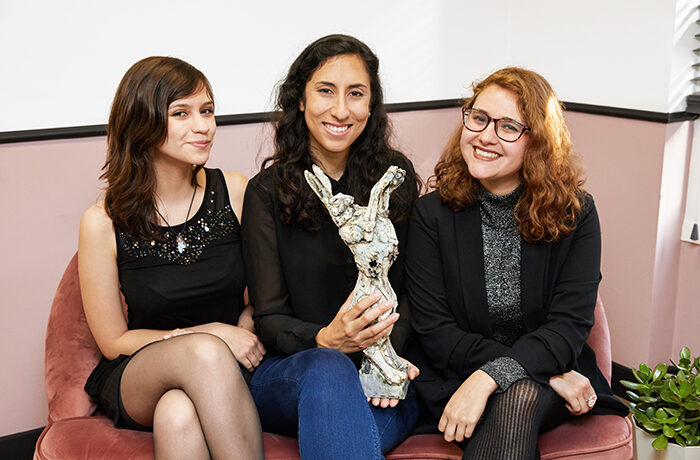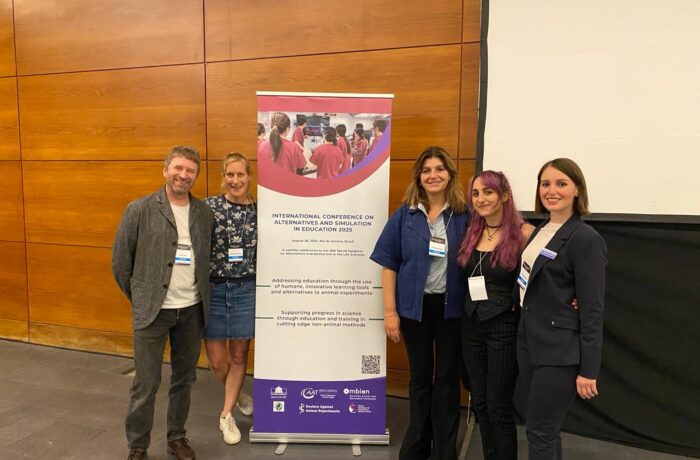Lush Prize launch new report on animal research and alternatives in Africa

Lush Prize has today released a major report looking at animal use in research, testing and education in Africa, as well as alternative, non-animal, approaches across the continent.
In the twelve years since the inception of the Lush Prize in 2012, only one of the 156 winning projects has been from Africa and only five nominations in total were received from organisations or scientists across the whole continent.
We wanted to assess, if possible, the level of animal use across the 54 independent states in Africa, to see what initiatives there were to use non-animal methods instead, and if there were any educational, public awareness or legislative campaigns to end animal use. To our knowledge, this report is the first of its kind on the ‘state of play’ on animal research and alternatives to animal use across Africa. It is intended as an initial scoping review to provide a basis for potential further work.
Key findings include:
- Universities appear to be a major use of animals in various countries in Africa
- A review of published scientific papers shows a higher numbers of results with regard to both animal research and ‘alternatives’ in Nigeria, Kenya, Egypt and South Africa, reflecting greater numbers of academic establishments and general scientific infrastructure, also reflective of the larger nations of Africa
- A great deal of animal research across Africa is related to animal farming (‘livestock’ production) and associated diseases. The expected increase in animal agriculture, particularly intensive farming, could lead to more animal use in research
- Another common area of animal research relates to plant extracts, despite many being of long human use in traditional medicine or as herbal remedies
- There is encouraging use (to a significant extent) of alternative approaches, such as in-silico and in-vitro methods, but these are often used as preliminary work to animal studies, rather than to fully replace them. Nevertheless, this demonstrates the great potential for further training, outreach and education
- It appears that no country in Africa collates (or at least makes publicly available) official data on the number of animals used in research
- Without official statistics a true picture of the level of animal research in Africa is not available, and we must assume significant numbers of animals are routinely used, even if this may be relatively ‘low’ when compared to countries with high rates of scientific research in academia and commercial laboratories
- South Africa is thought to use the largest number of animals, with estimates of around 130,000 per year
- The report provides examples of workshops and other replacement initiatives in a number of countries
- Highlighted examples of locally-led initiatives to create awareness of the use of animals in labs and replacement opportunities include the annual Africa Animal Welfare Conference
- The African Network for Animal Welfare held a workshop in 2015, funded by the prize money it received for winning the 2014 Lush Prize for Training in non-animal methods of research. Although this is now almost a decade ago, the results of that workshop still provide a suitable model for other organisations, institutions and governments to support the replacement of animals in education and training
- There appear to be few ethical reviews, guidelines and animal care committees. However, “Africa-centric” Animal Ethics Committee guidelines were published in 2023 by the Pan-African Network for Laboratory Animal Science and Ethics, with a view to “encourage the growing discourse in Africa regarding the moral principles and standards for the care and use of animals”
- No country in Africa has implemented legislation specifically relating to animal use in scientific research
- In the eight countries (out of 54 on the continent) where we found general animal welfare legislation which does provide some provisions around animal research, there are reported problems with oversight and enforcement in at least six
- No country in Africa has banned animal testing for cosmetics, with only South Africa proposing, but so far not implementing, it
- Animal protection organisations exist in virtually all African countries, although none work solely on the topic of animal research
- Through this research we did become aware of a few small organisations educating students on replacing animal research in Tanzania, Ghana and Zimbabwe, as well as past initiatives in Kenya
- Many animal welfare organisations already have a well-established programme for educational outreach, with the public, schools and university students (particularly veterinary students), which could provide an opportunity for outreach on animal research replacement
- Despite this, all sources suggest that there is a lack of public awareness or understanding of animal welfare amongst the public as well as a lack of legislation and enforcement
- A report on charitable funding of animal welfare in Africa, published by Animal Advocacy Africa in 2024, found that of the US$25 to 35 million they identified as being given to animal-related causes in Africa in 2020 the issue of animal use in labs “did not seem to attract any funding”
Our report notes that “there is little activity highlighting the use of animals in research, or scientific endeavours to replace animal use, across the continent of Africa. There are numerous challenges in trying to improve this situation. Similarly there is very low awareness of some basic principles which are better known elsewhere. These include the ‘3Rs’ (replacement, refinement, reduction of animal use), with notable exceptions such as their inclusion in Tanzania’s Animal Welfare Act. … such inclusion in legislation may still fall short of appropriate enforcement and oversight.”
It also highlights some of the challenges, and opportunities for moving forward on this issue. Africa is a huge and varied continent and it is important to ensure initiatives are locally and culturally relevant and take advantage of regional programmes such as the African Union Commission’s Animal Welfare Strategy for Africa or public health and climate change.
The report authors, Craig Redmond and Rebecca Ram, said:
“While our research reveals many areas of concern, such as a lack of effective or implemented legislation on animal research and no statistics on how many animals are used, we were pleased to see that some local animal welfare organisations had already implemented small-scale initiatives to teach students about animal welfare and the replacement of animal testing and that in-vitro and in-silico methods were widely in use (albeit in conjunction with animal research).
There are certainly lots of challenges to changing the landscape across a huge and varied continent, but there are also many opportunities.
We envisage the report as being a basis on which other interested organisations or individuals can conduct further research into specific topics or countries to provide a better understanding of how to progress and support the replacement of animals in research, testing and education across Africa.”
The full report, The use of animals and alternative approaches in research, testing and education in Africa, is available here.
Watch our presentation on the study at the Africa Animal Welfare Conference 2025.
(Photo: Tanzania Animal Welfare Society)








Spread the word: